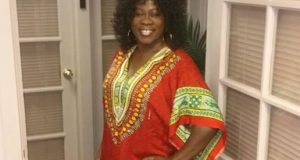By Lou Yeboah
Trust me, I’m going somewhere with this. Confining the history of an entire race of people to a twenty-eight-day period, not only does it diminishing the significance of our contributions, but it also allows the greater truth to be erased. The declaration of February as National Black History Month is but a tiny baby-step in the right direction towards understanding and wholeness in our country, but twenty-eight days is not nearly enough to celebrate and remember Black History. The celebration should continue all year round, as Black people’s achievements and successes are not limited to the twenty-eight days of February. But as the African Proverb translated says: Since you [we] do not have control over the help someone is rendering to you [us] it may [the help] not turn out exactly as you [we] expected. Ahh!
Because they have decided, “We are granted a whole twenty-eight days to remember Carter G. Woodson, Arthur A. Schomburg, Drusilla Dunjee Houston, Letitia Woods Brown, and John Hope Franklin; A whole twenty-eight days to remember Nate Turner, Colin Power, Rebecca Lee Crumpler, Lorraine A. Williams, Lorenzo Greene, John Henrik Clarke, Bill Picket, John Taylor, Alice Coachman, and Mary McLeod Bethune; A whole twenty-eight days to remember Otis Boykin, George Washington Carver, Malcolm X, Jesse Jackson, John Lewis, and W.E.B. Du Bios.”
“We get a whole twenty-eight days to remember Harriet Tubman, Rosa Parks, Dorothy Height, Ida B. Wells, Alice Coachman, Ella Baker, and Sojourner Truth; A whole twenty-eight days to remember Langston Hughes, Robert Hayden, Harriet Beecher Stowe, Marcus Garvey, Daniel Hale Williams, Crispus Attucks, Honorable Shirley Chisholm, Fannie Lou Hamer, Thurgood Marshall, and Adam Clayton Powell; A whole twenty-eight days to remember Ella Baker, Claudette Colvin, Gordon Parks, Bayard Rustin, Robert Sengstacke Abbott, Jesse Owens, Bessie Coleman, Rebecca Lee Crumpler, and Dr. Patricia Bath.”
“We get a whole twenty-eight days to remember the 30 times Martin Luther King Jr., was arrested between 1955 and 1965; A whole twenty-eight days to remember the year Muhammad Ali lost his championship title for simply standing up for something he believed in; We get a whole twenty-eight days to remember countless people of color who fought and died in the Civil War, laying down their lives for a country who wouldn’t think twice about theirs.”
“We get a whole twenty-eight days to remember 246 Years of Slavery [1619-1865]; A whole twenty-eight days to remember 400 Years of Oppression [1619-2019]; A whole twenty-eight days to remember 99 Years of Jim Crow Laws [1865-1964]; A whole twenty-eight days to remember 86 Years of Lynching [1882-1986]; A whole twenty-eight days to remember 14 years of Fighting for Civil Rights [1954-1968].” Why? Because “Water That Has Been Begged for Does Not Quench the Thirst.”
Are we aware of the extent to which we honor our predecessors? Or are we just celebrating what and when we’re told to celebrate? Is it that plausible to fit the entire span of hundreds of years into twenty-eight days? I quote Morgan Freeman, “Black history is American history.” The relegating of our history into one single month does nothing less than undermine the great things black people have done for this country. It’s almost like a subconscious insult to the entire black race, built on the premise of the “affirmative action” concept. It’s like someone is saying, “Give them their month so they can shut up already.” We were inventors, doctors, activists, botanists, scientists, poets, authors, carpenters, dancers, actors, artists, dreamers, and believers. We were all of the things for which white people were and are remembered. Some of the most important milestones achieved in American history go without proper acclaim. Meritorious, hard-earned accolades were stripped clean from the black man’s hands before he could touch them because at one point, he was only considered three-fifths of a person. But don’t worry, there’s still a little hope: This is the one month out of twelve where everyone else gets to praise us. We have twenty-eight days to show the world just how much we matter, so let’s act fast. Isn’t it great!” [Clip of an interview between Morgan Freeman and Mike Wallace on 60 Minutes a few years ago].
Celebrate and dance to the music “Black History” for there is no more powerful force than a people steeped in their history. And there is no higher cause than honoring our struggle and ancestors by remembering. For the progress of the Black community in spite of the terrors of Diaspora from our homelands on the continent of Africa, the brutality of slavery, the horrors of inequality, discrimination, and lynching during the Jim Crow era, the disgrace of legal racial segregation, and current struggles against racism and injustice is nothing short of phenomenal.
“Only be careful,” as Moses warns, “and watch yourselves closely so that you do not forget the things your eyes have seen or let them fade from your heart as long as you live. Teach them to your children and to their children after them.” [Joshua 4:9]. For our history as Africans and people of African descent in the Americas has been everything but comfortable, yet there is joy and hope to be shared and celebrated.
“Black History – Remember, Educate, Celebrate!”
“Lift every voice and sing, till earth and heaven ring, ring with the harmonies of liberty. Let our rejoicing rise, high as the listening skies, let it resound loud as the rolling sea. Sing a song full of the faith that the dark past has taught us. Sing a song full of the hope that the present has brought us. Facing the rising sun of our new day begun, let us march on till victory is won… May we forever stand, true to our God, true to our native land. [ The Black National Anthem…” Lift Every Voice and Sing was a hymn written as a poem by NAACP leader James Weldon Johnson].
 Westside Story Newspaper – Online The News of The Empire – Sharing the Quest for Excellence
Westside Story Newspaper – Online The News of The Empire – Sharing the Quest for Excellence





